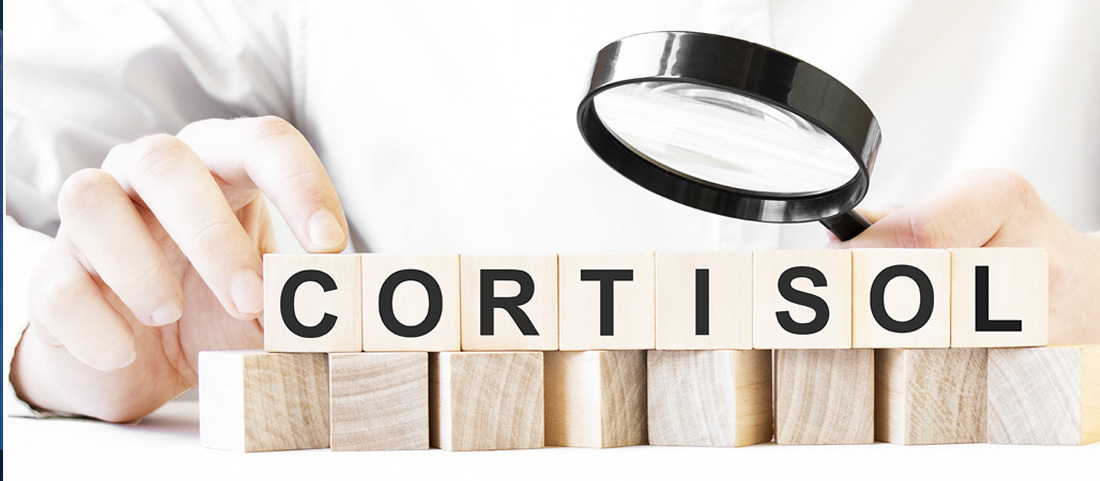
March 16, 2021
Cortisol and the “Staying Asleep” Relationship
Over the course of the year, you may find that your cortisol levels, the primary stress hormone that is produced by the adrenal glands and helps fuel our fight or flight response, may go up and down as we respond to demands. Every day, week, month, or season can bring different demands or expectations that you need to keep up with.
Even fun and seasonally festive activities that are meant to bring joy can create a stressful demand on your body and mind. The key is understanding the way your body copes with stress and establishing strategies to cope so that you can enjoy those festivities!
How does high cortisol affect your sleep?
Sleep is a sequential series of cycles including REM, light, and deep sleep periods. Your sleep cycle follows a cortisol secretion pattern – cortisol levels start to rise and should peak in the early morning and waking hours. As the day progresses, cortisol levels should decline as bedtime gets closer and sleep onset occurs again. However, during stressful times cortisol levels can be impacted and lead to changes in sleep including decreases in slow wave or deep restorative sleep. As a result, there can be increased waking throughout the night.
Cortisol impacts many biological pathways in the body. It acts as a stimulant on the body and creates feelings of being alert and wakefulness. Stress can increase cortisol activity and irregular nighttime cortisol is stimulating and can disrupt sleep. Additionally, spikes in cortisol can wake us in the middle of the night because this spike is designed to come in the morning, so our body is awake, alert and ready to get up and take on the day.
How can you target cortisol levels?
If high cortisol levels are keeping you up at night, the solution may not just be sleep support designed to help you fall asleep. The key is finding a solution that supports the natural cortisol rhythm, keeping cortisol levels low before the morning spike that starts the day.
Encountering a busy season in your life can be a positive experience if you have exercises to balance and ways to cope with the increased expectations and obligations without elevated feelings of stress. One way to balance the stress that can impact cortisol production is to recognize the stressor and adopt strategies that resonate to help build resiliency to the situations. This way you can process the situation without triggering a stress related fight or flight response.
Listen to your body and recognize when you feel stressed before it becomes overwhelming, allowing yourself the ability to process and choose your reaction. Red flags that you may be experiencing a stressful situation may include difficulty staying asleep, feelings of a racing heart, mood changes, weight gain, tension headaches, clenched jaw, and exhaustion.
As you become more aware of your body’s triggers and reactions, you can start to build resiliency and take control of the stress response domino effect.
References:
- What is Cortisol? WebMD, (https://www.webmd.com/a-to-z-guides/what-is-cortisol#1)
- Hirotsu C, et al. Sleep Sci. 2015 Nov;8(3):143-52.
- Elder G, et al. Sleep Med Rev. 2014;18(3):215-24.
